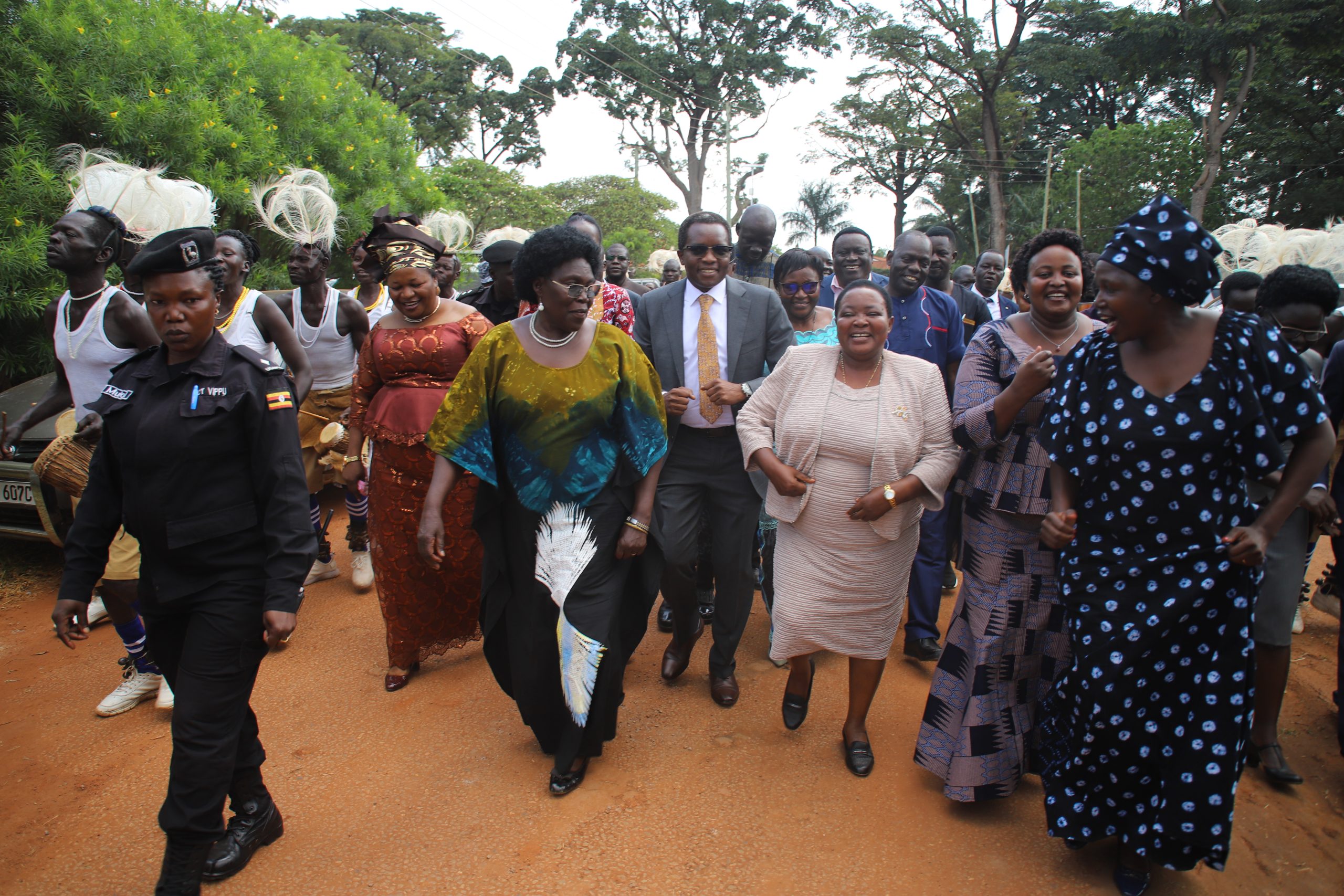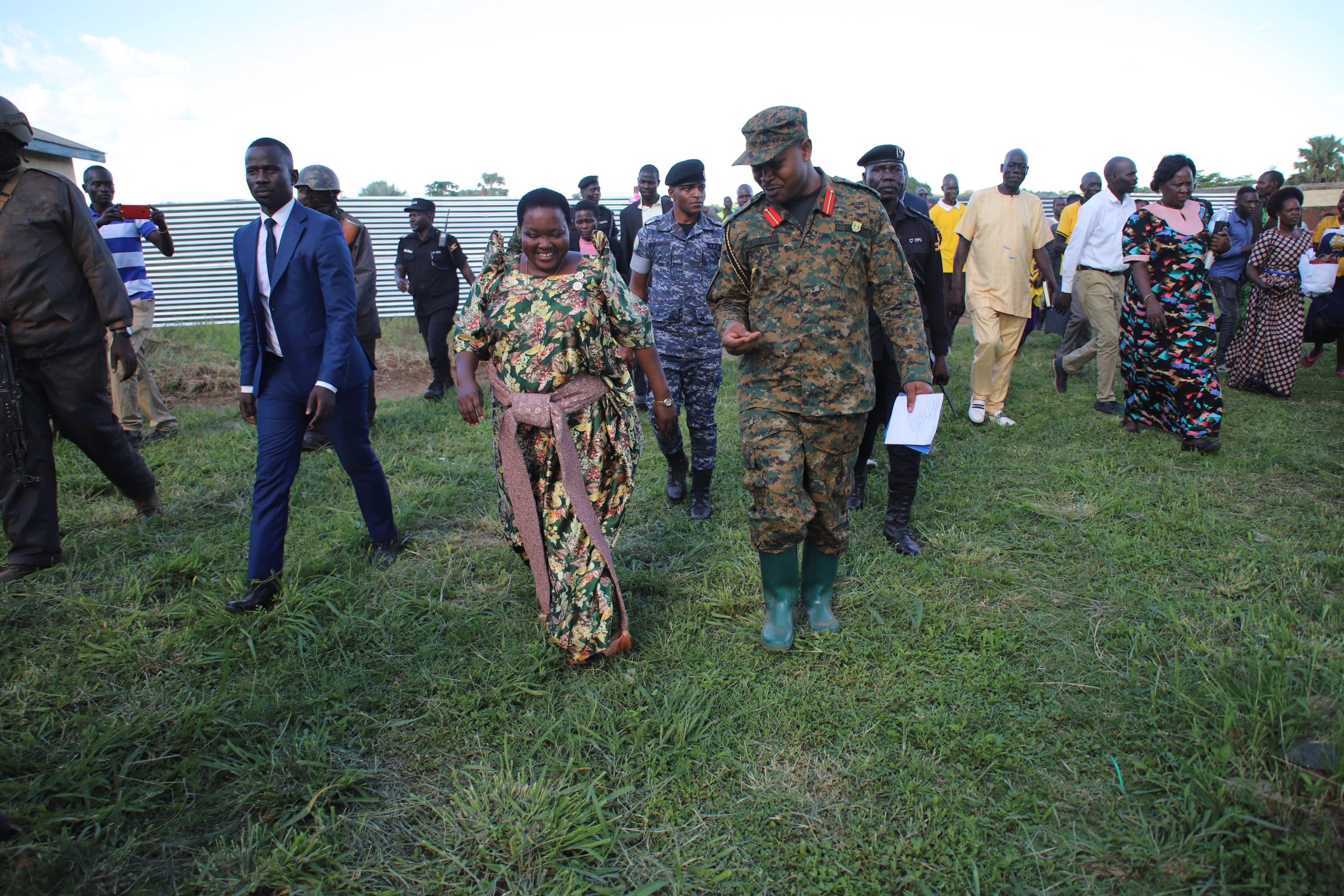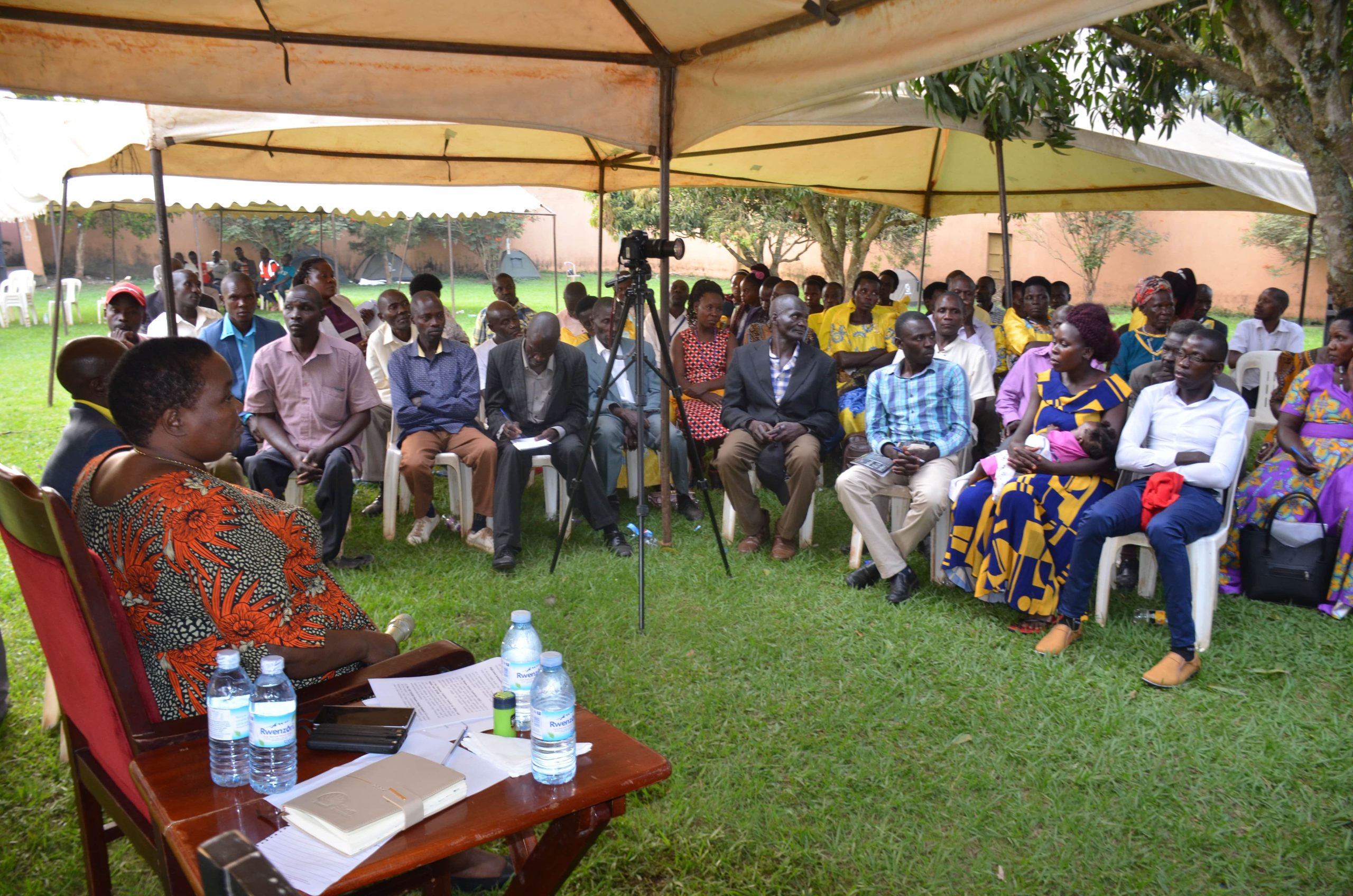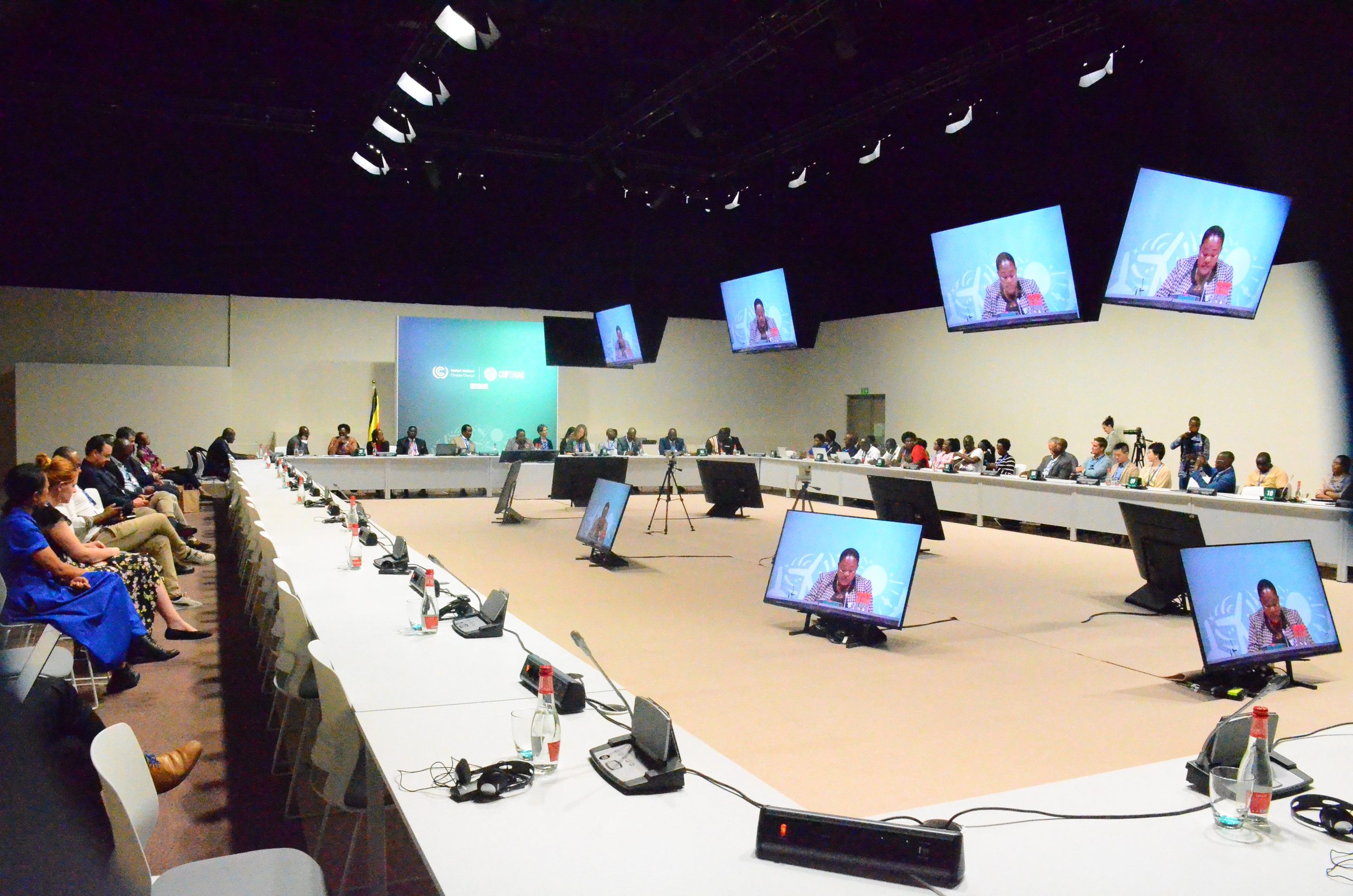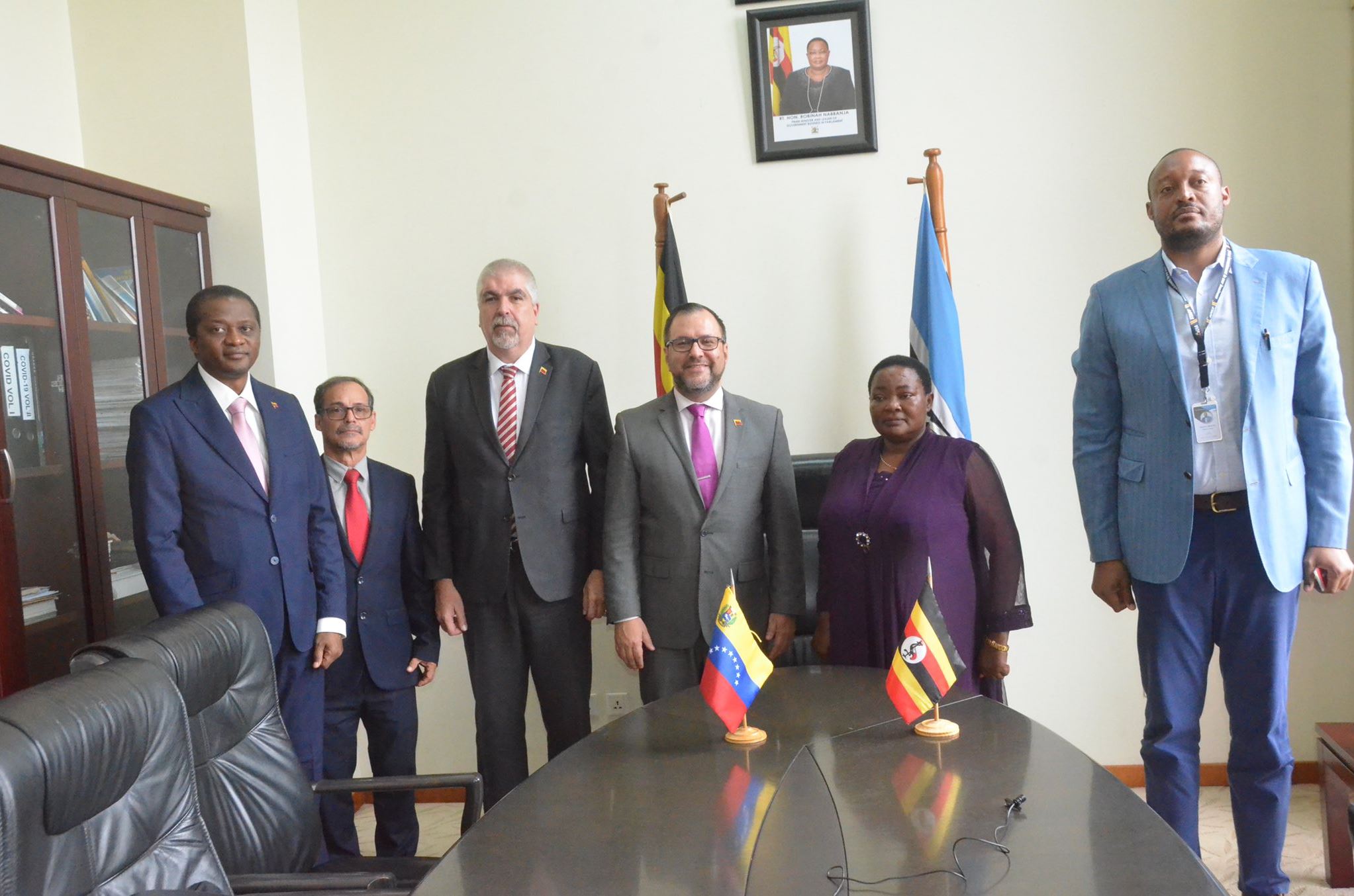By: Ismael Kasooha, KABALE
President Yoweri Museveni has eulogized the late Bank of Uganda Governor, Prof. Emmanuel Tumusiime Mutebile, describing him as a distinguished public servant and a hardworking man who committed his career to the service of his nation.
In his condolence message delivered to the mourners by Prime Minister Robinah Nabbanja, president Museveni said that Mutebile played his part in the socio-economic transformation of the country and now the young generation must take up the mantle.
“I can say that Mutebile did his part and the younger generations should take on the mantle of reforming the financial system to deliver reasonably priced loans that can support the socio-economic transformation of Uganda,” president Museveni said.
The burial of late Prof. Mutebile was held in Kijuguta Northern Division Kabale Municipality Kabale District and led by the Rt. Rev. Eng. George Bagamuhunda Bishop of the Diocese of Kigezi. An earlier service where eulogies were made took place at Kigezi High School Primary Lower Play Ground in Kabale Municipality.
“I like that environment of healthy dissent with divergent but constructive ideas because the debate enriches robust decision making,” the message read in part.
“These policies aimed to stop the hemorrhaging of public resources and restore economic activity, following the turmoil and ruin of the 1970s and 1980s,” said Museveni.
He said that most of the reforms that he advocated and later implemented were successful e.g., the enforcement of fiscal budget discipline helped to control inflation from triple digits to low single digits, which is good for planning and investment.
“But in fairness to Mutebile, I sometimes heard him appealing to the profiteering commercial banks to reduce their lending rates because the Bank of Uganda’s policy rate, as well as inflation, were low,” said Museveni.
The president said that Mutebile’s productivity was evident from how quickly he would submit papers when he asked for his input on economic matters.
“The country has lost a gallant son who will always be remembered for his meritorious and patriotic service to his motherland,” Museveni said.
Many people of different walks of life eulogized the late Prof. Mutebile as a man who was kind to people even the strangers and stood by his word.
Dr. Ruhakana Rugunda, who studied with Mutebile right from childhood said that Kigezi region and Uganda in general had lost a gallant son who wanted to see people transformed.
“Tumusiime attracted different political shades. It shows that he maintained his non-sectarian stance and we should learn from him,” said Rugunda.
The widow, Mrs. Betty Kyakyo Mutebile said that her husband would even help people beyond their expectations when approached for assistance.
“Emmanuel was very generous and would help without any hesitation whenever people approached him. He was a God fearing man who even read scriptures at home as we prayed,” said Kyakyo.
Dr. Donald Kaberuka, who represented the president of Rwanda Gen. Paul Kagame said that the people of Rwanda are mourning the passing away of a man who worked for all mankind despite the differences.
“We are looking forward to working together to resolve the differences between the two countries,” said Kaberuka.
Gen. Jim Muhwezi, who spoke on behalf of the Banyakigezi described Prof. Mutebile as a giant who worked for his area, country and the region in general.
At the service was also Rt. Rev Callist Rubaramira Bishop Kabale Diocese, Former Prime Minister Rt. Hon.Amama Mbabazi, Cabinet Ministers including General Jim Muhwezi Minister for Security, Hon Dr Chris Baryomunsi Minister for ICT and National Guidance, Hon. David Bahati Minister for State for Industry, Trade and Cooperatives, Hon. Henry Musasizi Minister for State for Finance General Duties, Hon Sarah Mateke Minister of State for Youths and Children Affairs and Hon. Okello Oryem Minister of State for Foreign Affairs and Members of Parliament and leaders of Political Parties including Patrick Amuriat, the FDC president, Olara Otunu, former UPC President among others. General Otema Rimadi represented the Chief of Defense Forces and many local leaders.
Who was Prof. Tumusiime Mutebile?
Prof. Emmanuel Tumusiime-Mutebile was born on the 27th of January 1949 in the western Uganda district of Kabale before he walked his way through the system becoming the country’s most sought and renowned accountant.
He attended Kigezi College Butobere for his O-Level studies and later transferred to Makerere College School in Kampala for his A-Level studies. In 1970, he entered Makerere University, where he was elected president of the university Students’ Guild.
He was forced to flee Uganda in 1972 after he gave a speech publicly criticizing the expulsion of Asians from the country by Idi Amin. He fled to England via Tanzania, and was able to finish his studies at Durham University, graduating with an upper-second in Economics and Politics. In October 1974, he began his post-graduate studies at Balliol College, Oxford, before returning to East Africa. He entered the University of Dar es Salaam to lecture and conduct research while pursuing his doctorate in economics.
Between the year 1979 and 1984, Tumusiime-Mutebile was appointed to several government positions in Uganda ranging from deputy principal secretary to the president at State House in 1979, to undersecretary in the ministry of planning in 1981 where he rose to senior economist and then chief economist in 1984.
In 1992, he was appointed permanent secretary to the newly combined ministry of finance planning & economic development, a merger that he had advocated while working under Minister of Finance Gerald Ssendaula.
He was the governor of the Bank of Uganda from 2001 until his death in 2022.
He is the longest-serving chief executive in the Bank of Uganda’s history as well as the Africa’s longest-serving central bank governor at the time of his death.
He is credited with many of the sound economic policies adopted by the Uganda government at the urging of the central bank during the 1990s and the first decade of the 2000s.
He worked as a consultant for multilateral and regional organizations including the World Bank, International Monetary Fund, Organization for Economic Cooperation and Development, Macroeconomic and Financial Management Institute of East and Central Africa, UK Department for International Development, the North South Institute in Canada, and for the governments of Rwanda, Kenya, Tanzania, Eritrea, and Nepal.
He was a member of the High Level Panel of the UNDP for the production of the Human Development Report of the UNDP; the Management Group for overseeing the evaluation of the implementation of the Comprehensive Development Framework of the World Bank in 2001; and the High Level Panel of Eminent Persons to advise the President of the African Development Bank on the strategic future of the African Development Bank in 2006.
He held Fellowships of the World Bank Institute, and Rotary Foundation of Rotary International.
May his soul rest in eternal peace. END
